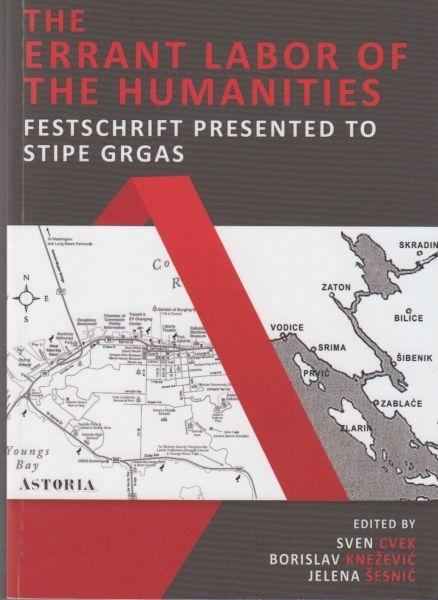The Errant Labor of the Humanities: Festschrift Presented to Stipe Grgas
Synopsis
In preparing this Festschrift, we had in mind a specific inflection of the concept of errancy, one that comes from the rich and layered work of the American scholar and philosopher William V. Spanos, who conceived it as a way of rendering the logos and telos of the American project subject to thorough rethinking and redefinition, both in history and at present. By calling attention to the complementarity of the work of the two scholars, Grgas and Spanos, who both hone their critical skills on the theme of the logic of the American project, we do not so much intend to claim a direct influence but rather wish to highlight the confluence, commingling, and inspiration that working in the humanities may engender. This commonality is featured in the work of Spanos and in the work of Grgas as a dedicated and passionate engagement with the practices and possibilities inscribed in the discipline, which also requires the scholar to move beyond the given and inhabit what Spanos calls a meta-level of thinking. Grgas’s work, located at the intersection of several disciplines within the humanities and social sciences (which is reflected in the principal themes of this Festschrift), reveals precisely such a commitment that has in the course of his long, fruitful and versatile career charted out a scholarly position always in the process of becoming, and never quite stabilized and domesticated.
Grgas’s academic career has been as diverse as the humanistic disciplinary habitus allows: a provocative and popular lecturer, a researcher of tireless intellectual curiosity, a scholar testing the boundaries of disciplines, an enthusiastic and motivating mentor, a thoughtful and sensitive translator, or, as one of the contribution shows, an unobtrusive poet, Grgas has always displayed a remarkable intellectual energy in every aspect of his engagement with the varied and nowadays often embattled debates in the humanities.
However, Grgas’s work as an Americanist, cultural theorist, translator, writer, mentor, and teacher doesn’t merely reflect the exciting, if uncontainable, shifts marking the discipline in the last couple of decades; rather, his intellectual labor has been committed to offering a new way of comprehending this change, its scope, direction, and consequences, so as to create an intense web of connections and interrelations where different disciplines talk to one another, without hastening to provide answers so much as to provoke the right kind of questions. The questioning and questing nature of Grgas’s work has marked his writing from the start, but it has intensified in his later writing as the humanities find themselves facing a whole new set of questions for the new millennium. His sustained effort to bring a new awareness of economic issues to discussions of culture and literature in the recent period has been both timely and critically engaged in its reflection on why this issue is particularly significant at this point in history.
The layout of the Festschrift may be said to loosely reflect and acknowledge Grgas’s scholarly interests that have charted out his career in the field of the humanities.
(from the Editors’ Preface)
Chapters
-
Editors’ Preface
-
GEOGRAPHIES OF IMAGINATION
-
Literature, Migration, Translation
-
The Dis/location of Solitude: The Disaggregation of Empire in Joseph Roth’s The Radetzky March
-
White Civility and the Im/Possibility of Crossing in Guy Vanderhaeghe’s The Last Crossing
-
Crossing to the Imaginary: Bildungsroman and a Journey Into the Wild
-
Displacing the Dead – Remapping of Post-apocalyptic Geographies
-
Between the Rock and the Homeplace: Poetics of Bestiality
-
CROATIA, AMERICA, HISTORY
-
Capitalism beneath the Mythical Beginning: The “Discovery” of America as a Topic of Twentieth-Century Croatian Literature
-
Notes on “Command of Money” and the End of Socialism
-
The Institutional Framework of Post-Socialist Literary Production: Literature as Creative Writing
-
RETHINKING AMERICA
-
The Exceptional Exception: Frederick Douglass and the Problem of the Nation
-
An American Antigone: Henry James’s Washington Square
-
F. O. Matthiessen, C. L. R. James and a Sense of the Past of American Studies
-
CAPITAL IN CONTEXTS
-
Marx’s Meontology
-
Contours of Capital in the Novel
-
CASE STUDIES: NATURE AND SCIENCE
-
(Pre-)Romantic Constructions of Nature
-
“Knotting into” Gravity’s Rainbow: Scientific Paradigms and Literature
-
List of Contributors
Downloads

